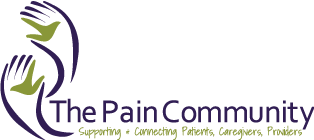Methadone Cardiac Concerns

Some patients in methadone maintenance treatment (MMT) programs may have conditions or behaviors associated with increased risks of arrhythmia, including: abuse of cardiotoxic substances, cardiovascular disease, electrolyte imbalances, and prescribed medications that may foster cardiac repolarization disturbances. Furthermore, recent data suggest that in some individuals methadone – alone or, more commonly, in combination with other More Info »
Methadone-Drug Interactions (Medications, illicit drugs, & other substances)

Each year in the U.S. there are innumerable adverse drug reactions, broadly defined as any unexpected, unintended, undesired, or excessive response to a medicine. Such reactions may require discontinuing or changing medication therapy. Furthermore, greater than 2 million of those are serious reactions resulting in hospitalization and/or permanent disability, and there are more than 100,000 More Info »
Patient Instructions Handout: Safely Taking Oxycodone

Most patients and their families or caregivers find the medication information provided by pharmacies, or product package inserts (if provided), difficult to read and understand. Hence, they are of little help as a safety measure. Opioid medications must especially be safeguarded by patients. Recent data suggest that teenage pilferage and illicit use of prescription opioids More Info »
Opioid Tapering: Safely Discontinuing Opioid Analgesics

Severe hurricanes in the Gulf Coast during 2005 caused many hardships for patients and healthcare providers alike. An important concern coming to light during this time of crisis was the inability to obtain prescription medications, including opioid analgesics. Patients with chronic pain and their healthcare providers faced the daunting task of either somehow procuring the More Info »
Commonsense Oxycodone Prescribing & Safety

Oxycodone is FDA-approved for treating moderate to severe pain that is either acute or chronic in nature. It has been widely used in pain management practice for decades but has recently been receiving much negative attention due to abuse, overdose, and deaths associated with the controlled-release formulation. So, in the overall approach to pain management, More Info »
Opioid Safety in Patients With Renal or Hepatic Dysfunction

It has been estimated that up to one-third of patients with renal dysfunction (defined as creatinine clearance [CrCl] < 50 mL/min) also receive opioids to relieve pain [Davison 2003]. Use of opioids in these patients can present a challenge because adequate pain control is necessary while balancing the risk of overdose due to altered drug More Info »
Managing Opioid-Induced Constipation

Constipation is a frequent side effect of opioids since these agents decrease peristaltic activity in the gastrointestinal (GI) tract. Because of the mechanisms involved in opioid-induced constipation, some treatments that may be applicable for common, functional constipation are inappropriate for ambulatory-care patients prescribed opioid analgesics. Also in these patients, the distress of constipation may add More Info »
The OIH Paradox: Can Opioids Make Pain Worse?

In an early essay describing his clinical observations of patients injecting morphine on a daily basis, physician/author Clifford Albutt [1870] wondered, “Does morphia tend to encourage the very pain it pretends to relieve?” He continued, “I have much reason to suspect that a reliance upon hypodermic morphia only ended in a curious state of perpetuated More Info »
